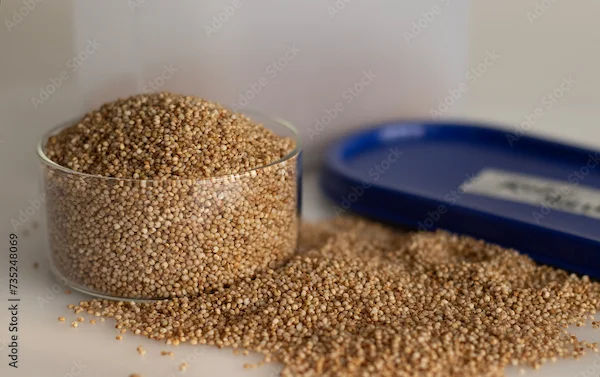Hyponatremia: Understanding Low Sodium and How to Manage It
Understand hyponatremia (low sodium): Learn the symptoms, causes, and effective ways to manage low sodium levels. Get informed and take control.

Written by Dr.Sonia Bhatt
Last updated on 3rd Jul, 2025

Hyponatremia is a medical condition that might sound complex, but it essentially means low sodium levels in the blood. Sodium is an essential electrolyte that helps regulate the amount of water in and around your cells, tissues, and organs. When sodium levels drop, it can lead to serious health consequences.
In this article, we’ll explore what hyponatremia is, what causes it, how to recognise its symptoms, and what steps you can take to manage and prevent it. If you’re at risk for hyponatremia, understanding the condition and how to take action is key to keeping your body healthy and functioning properly.
What is Hyponatremia?
Sodium is an important electrolyte in your body that helps control the amount of fluid in your body and keeps your muscles and nerves working properly. When sodium levels drop below a normal range (less than 135 milliequivalents per litre or mEq/L), it’s known as hyponatremia.
Your body works hard to maintain a proper balance of fluids and electrolytes, but sometimes things go wrong. Too much water or too little sodium can throw off this balance and lead to hyponatremia. This condition can happen gradually, or it can develop quickly, and when it does, it can lead to serious health problems if not treated.
Causes of Hyponatremia
There are several reasons why sodium levels might become too low in the body. Generally, hyponatremia occurs in one of two ways: either from the body holding onto too much water or losing too much sodium.
1. Excess Water Retention
Sometimes, the body holds onto too much water, which dilutes the sodium in the blood. This can happen in the following situations:
Syndrome of Inappropriate Antidiuretic Hormone Secretion (SIADH): In this condition, the body makes too much of a hormone that helps your kidneys retain water. This causes water buildup in the body, leading to low sodium levels.
Heart Failure: When the heart is not pumping blood effectively, fluid can build up in the body, which can lower sodium levels.
Kidney or Liver Disease: Both kidney and liver problems can make it harder for the body to remove excess water, leading to hyponatremia.
Overhydration: Drinking an excessive amount of water in a short period (like during intense exercise or long-distance events) can overwhelm the kidneys and cause a dilution of sodium.
2. Excess Sodium Loss
Sometimes, the body loses too much sodium, either from urine, sweat, or digestive problems. This can happen due to:
Diuretics: These medications, often prescribed for high blood pressure or heart failure, increase the amount of urine you pass. While they help the body get rid of excess fluid, they can also cause sodium loss.
Severe Diarrhea or Vomiting: These can cause the body to lose a lot of fluids and electrolytes, including sodium.
Excessive Sweating: If you’re sweating a lot, such as during intense exercise or in extreme heat, you may lose too much sodium, which can result in hyponatremia.
Symptoms of Hyponatremia
The symptoms of hyponatremia can vary widely depending on the severity and the speed at which sodium levels drop. They can be classified into mild, moderate, and severe symptoms.
Mild Symptoms
Nausea and vomiting
Headache
Confusion and irritability
Muscle weakness or cramps
Drowsiness and fatigue
Moderate Symptoms
Severe nausea and vomiting
Headache
Confusion, restlessness, and irritability
Severe Symptoms
Seizures
Loss of consciousness or coma
Severe and persistent vomiting
Severe confusion, hallucinations, and stupor
Who is at Risk for Hyponatremia?
While anyone can develop hyponatremia, certain people are more likely to experience it. Risk factors include:
Older Adults: Older adults are at increased risk due to age-related changes in kidney function, increased use of medications like diuretics, and a higher likelihood of chronic health conditions such as heart failure or kidney disease.
Chronic Illnesses: Conditions like heart failure, kidney disease, liver disease, and adrenal insufficiency can make the body more prone to fluid and electrolyte imbalances, including hyponatremia.
Medications: Diuretics, antidepressants, antiepileptics, and other medications can increase the risk of hyponatremia by affecting the kidneys' ability to balance sodium levels.
Excessive Water Intake: Athletes and individuals who consume large amounts of water during endurance activities may be at risk, especially if they do not replace electrolytes lost through sweat.
Hormonal Changes: Disorders affecting the adrenal glands or thyroid, or certain medications that influence hormone levels, can contribute to sodium imbalances.
Treatment for Hyponatremia
The treatment of hyponatremia depends on the severity of the condition, its underlying cause, and how quickly the sodium levels have dropped. In mild cases, adjusting fluid intake and electrolytes may be sufficient. However, in more severe cases, immediate medical intervention is necessary.
1. Mild Hyponatremia:
If the condition is mild, your healthcare provider may recommend the following approaches:
Fluid Restriction: In cases where excessive water intake is the cause, restricting fluid intake can help raise sodium levels.
Oral Electrolyte Solutions: In some cases, oral electrolyte solutions can help restore sodium levels and prevent further dilution.
2. Moderate to Severe Hyponatremia:
For moderate to severe cases, more intensive treatments may be necessary, including:
Intravenous (IV) Sodium Administration: IV fluids containing sodium may be administered to raise sodium levels more quickly, especially if the levels have dropped rapidly.
Hypertonic Saline: In emergency situations, hypertonic saline (a solution with a higher concentration of sodium than normal blood levels) may be given to correct the imbalance quickly.
Medications to Increase Sodium Levels: To treat hyponatremia, some medications, specifically vasopressin receptor antagonists (vaptans), can be used. Vaptans work by blocking the action of vasopressin, a hormone that regulates water balance, thereby increasing sodium concentration in the blood. Common examples include Tolvaptan and Conivaptan.
3. Underlying Conditions Treatment:
For individuals with hyponatremia caused by an underlying health condition (e.g., heart failure, kidney disease, or SIADH), addressing the root cause is crucial in restoring sodium balance. This may involve managing heart failure symptoms, adjusting medications, or treating infections or other contributing factors.
Consult Top Urologists
Preventing Hyponatremia: What You Can Do
If you are at risk for hyponatremia, there are several steps you can take to reduce your risk and keep your sodium levels balanced:
Monitor Fluid Intake: Ensure a balanced fluid intake, especially during intense exercise or hot weather.
Monitor Medication Use: If you take medications that affect sodium levels, such as diuretics or antidepressants, talk to your healthcare provider about your risk for hyponatremia and whether adjustments are needed.
Eat a Balanced Diet: Sodium is an essential nutrient, so ensure your diet includes appropriate amounts of sodium, especially if you have a condition that increases your risk for hyponatremia.
Know the Signs: Be aware of the symptoms of hyponatremia and seek medical help if you experience any warning signs, especially if you have a known risk factor for the condition.
Manage Chronic Conditions: Regular check-ups and appropriate management of chronic conditions such as heart failure, kidney disease, and endocrine disorders can help prevent hyponatremia.
Conclusion
Hyponatremia is a serious condition that requires timely diagnosis and appropriate treatment to prevent complications. By understanding the causes, symptoms, and preventive measures associated with hyponatremia, individuals can better manage their health and avoid the potential risks associated with this condition. If you suspect you have hyponatremia or are experiencing symptoms, consult with your healthcare provider for an accurate diagnosis and tailored treatment plan.
Remember, maintaining a balance is key. Stay hydrated, but not overly so, and keep an eye on your sodium intake and overall health to ensure that your body's intricate systems function smoothly.
Consult Top Urologists
Consult Top Urologists

Dr Anupam Sharma
Urologist
18 Years • MBBS, MS(Gen Surgery), DNB (Urology)
Delhi
Apollo Hospitals Indraprastha, Delhi

Dr Karthik Maripeddi
Urologist
13 Years • MBBS MS FMAS MCh URO(OSM)
Hyderguda
Apollo Hospitals Hyderguda, Hyderguda

Dr. Rohit Bhattar
Uro Oncologist
14 Years • MBBS, MS, MCh (Urology), Fellowship in Uro-oncology and Robotic Urology (United Kingdom)
Ahmedabad
Apollo Hospitals Gandhinagar, Ahmedabad
(75+ Patients)

Dr. Dhruv B. Patel
Urologist
12 Years • MBBS, MS, DrNB (Urology - IKDRC, Ahmedabad)
Ahmedabad
Apollo Hospitals Gandhinagar, Ahmedabad

Dr Anil Kumar T
Urologist
12 Years • MBBS, MS ( General Surgery ) , MCh (Genito-Urinary Surgery , CMC Vellore) , Fellowship in Minimally Access Surgery , Fellow- ship in Uro-Oncology and Robotic Surgery, UICC Fellowship (Geneva, Switzerland).
Bengaluru
Apollo Hospitals Jayanagar, Bengaluru
Consult Top Urologists

Dr Anupam Sharma
Urologist
18 Years • MBBS, MS(Gen Surgery), DNB (Urology)
Delhi
Apollo Hospitals Indraprastha, Delhi

Dr Karthik Maripeddi
Urologist
13 Years • MBBS MS FMAS MCh URO(OSM)
Hyderguda
Apollo Hospitals Hyderguda, Hyderguda

Dr. Rohit Bhattar
Uro Oncologist
14 Years • MBBS, MS, MCh (Urology), Fellowship in Uro-oncology and Robotic Urology (United Kingdom)
Ahmedabad
Apollo Hospitals Gandhinagar, Ahmedabad
(75+ Patients)

Dr. Dhruv B. Patel
Urologist
12 Years • MBBS, MS, DrNB (Urology - IKDRC, Ahmedabad)
Ahmedabad
Apollo Hospitals Gandhinagar, Ahmedabad

Dr Anil Kumar T
Urologist
12 Years • MBBS, MS ( General Surgery ) , MCh (Genito-Urinary Surgery , CMC Vellore) , Fellowship in Minimally Access Surgery , Fellow- ship in Uro-Oncology and Robotic Surgery, UICC Fellowship (Geneva, Switzerland).
Bengaluru
Apollo Hospitals Jayanagar, Bengaluru




